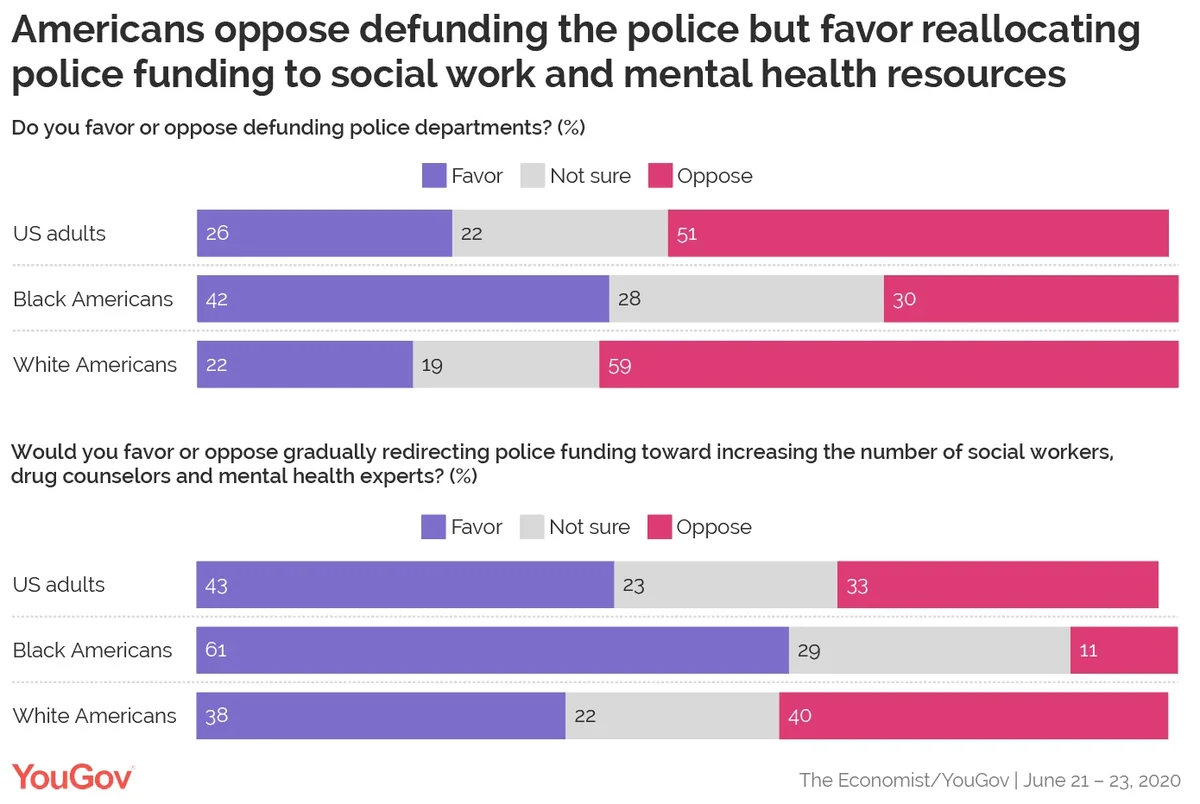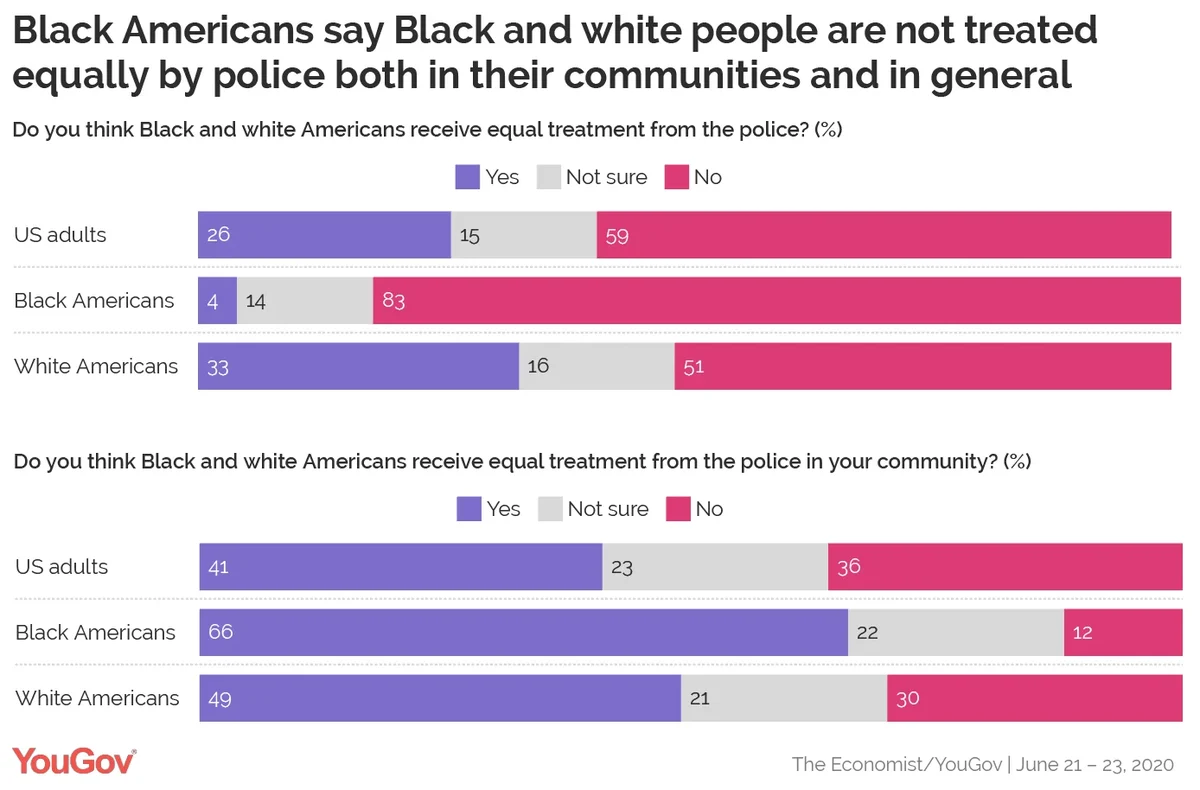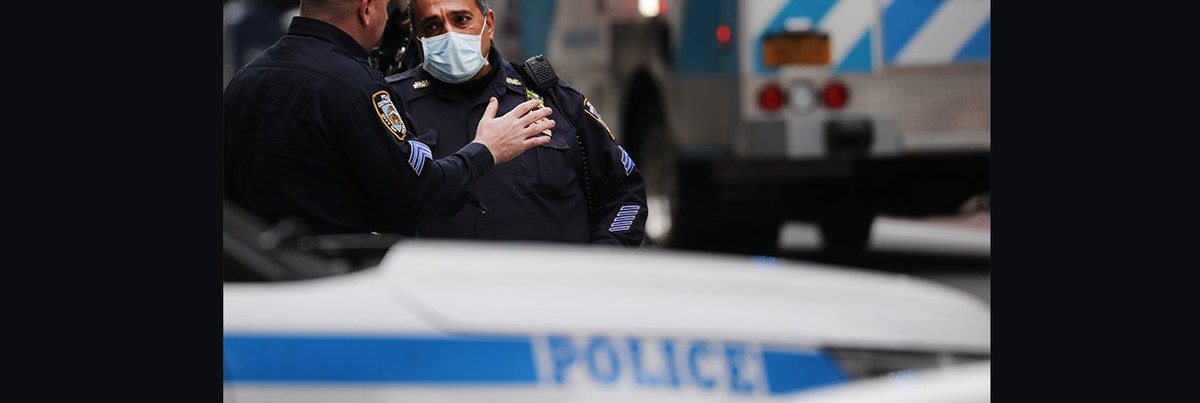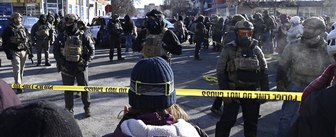Last Thursday, the House of Representatives passed a police reform bill that would ban federal police from using chokeholds and lower the legal standards to pursue criminal penalties for police misconduct. Although the legislation will likely be opposed by the Senate, it is considered a step forward among those who call for criminal justice reform.
But what about ideas around “defunding” the police—a rallying cry taken up by demonstrators against police brutality and racism? In the latest Economist/YouGov Poll finds Americans twice as likely to oppose (51%) defunding the police as they are to favor it (26%). But more Americans favor (43%) the idea of reallocating police department funds toward social work and mental health resources than oppose it (33%).
One in five of those who oppose defunding would support reallocation of some police funds to social welfare programs (21%).

The racial difference in police evaluations is dramatic. Most whites have a favorable opinion of police officers both nationally (67%) and in their community (72%). On the other hand, Black Americans have an unfavorable opinion of police nationally —by two to one—and are divided closely in their feelings about the police in their own community. Two in five Black Americans (43%) have a favorable opinion of their local police and 37 percent have an unfavorable view.
White Americans agree the police do not treat Black and white people equally in the country as a whole, but think the races are treated equally by police in their own communities. Black Americans aren’t so sure that’s the case: by more than five to one, they see unequal treatment even in their own communities.
Black and white people have different connections when it comes to police departments. Over a third of white Americans (35%), but only 25 percent of Black Americans, have a close friend or family member who is a police officer. Trump voters are even more connected to the police: four in 10 of them have a close friend or family members in the force. In general, knowing someone in the force improves the person’s perception of the police: those with a connection to the police department think better of the police, both nationally and in their own communities.

One in four Americans, white and black, know someone who participated in a protest in the last month. Half of liberals, and 39 percent of those under the age of 30 have a close friend or family member who protested or did so themselves.
President Donald Trump gets a negative rating when it comes to his response to the protests: 37 percent approve, and 52 percent disapprove. Whites are as likely to disapprove (46%) as approve (43%) of his handling of the response to the protests. Black Americans disapprove by more than eight to one.
Still there is optimism this week that protests will lead to change. Majorities believe the protests are likely to lead to police reform.
{{ raw_content }}
See the toplines and crosstabs from the latest Economist/YouGov Poll
Methodology: The Economist survey was conducted by YouGov using a nationally representative sample of 1,500 U.S. adult citizens interviewed online between June 21 - 23, 2020. This sample was weighted according to gender, age, race, and education based on the American Community Survey, conducted by the US Bureau of the Census, as well as 2016 Presidential vote, registration status, geographic region, and news interest. Respondents were selected from YouGov’s opt-in panel to be representative of all US citizens. The margin of error is approximately 3.4% for the overall sample.
Image: Getty








